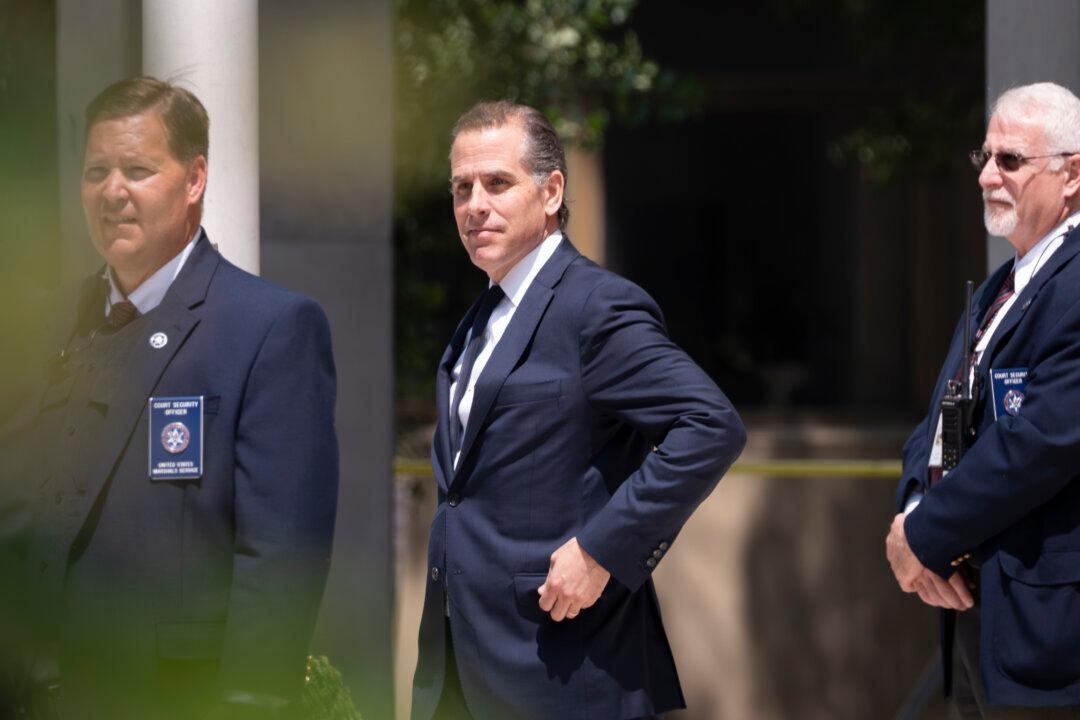The lead criminal defense attorney for President Joe Biden’s son, Hunter Biden, has asked to step down from the case because he might be called as a witness.
The lawyer, Christopher Clark, filed a motion for leave to withdraw as counsel for Mr. Biden on Aug. 15 in a Delaware court, where the president’s son faces tax fraud and felony gun possession charges.





